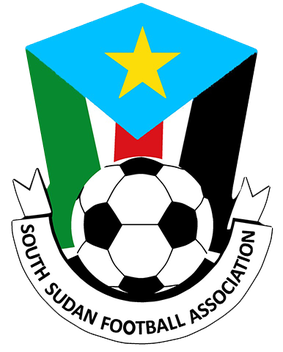Building a winning mentality is integral to the success of South Sudan FC. This mindset can often be the difference between average performance and exceptional achievement in competitive sports. Developing such a culture requires persistent effort across various facets of the club, from coaching philosophy to player psychology.
Establishing a South Sudan FC
A competitive culture within South Sudan FC begins with a focus on discipline and accountability. Coaches instill values that promote hard work and commitment among players, ensuring that every member understands their role in achieving team goals kèo nhà cái.
This culture is not merely about the physical aspects of football but also encompasses mental toughness. Players are encouraged to embrace challenges as opportunities for growth. By navigating high-pressure situations—whether in matches or training—athletes learn to perform optimally under stress. The notion of resilience becomes paramount; when setbacks occur, the team rallies together rather than succumbing to despair.
Each training session serves as an opportunity to reinforce this competitive spirit. Drills are designed not only to refine skills but also to cultivate an atmosphere where excellence is expected. The psychological component becomes clear as players begin to understand that success is earned through consistent effort, fostering a sense of pride in representing their club.
Leveraging Sports Psychology
To further enhance the winning mentality, South Sudan FC recognizes the importance of sports psychology. Engaging a sports psychologist or mental conditioning coach can help players improve their focus, confidence, and emotional regulation during games.
Mental skills training includes visualization techniques, where players mentally rehearse successful performances before matches. Such practices can significantly impact confidence levels, allowing players to imagine handling pressure situations effectively. Moreover, learning how to cope with anxiety is crucial; mental conditioning strategies equip athletes with tools to remain calm and composed during intense moments.
The integration of sports psychology should also extend to team bonding activities outside the traditional pitch scenarios. Group workshops, discussions, or even social events foster camaraderie, which strengthens trust among teammates. A united squad that genuinely supports one another becomes more formidable on the field.
Setting Ambitious Goals
Goal-setting is another vital element in developing a winning mentality at South Sudan FC. Establishing clear, achievable targets helps players visualize their path toward success. These goals should encompass both individual and team objectives, offering players a comprehensive view of what they are collectively striving to achieve.
For example, setting performance benchmarks such as improving match statistics or qualifying for higher stages in tournaments provides concrete motivations. Additionally, personal development goals—for instance, enhancing specific skills or fitness levels—empower athletes to take ownership of their progress.
Regularly reviewing these goals is essential as well. Celebrating achievements, no matter how small, reinforces the commitment to excellence and inspires players to aim higher continuously. Failure to meet certain expectations should be seen not as a setback but as an opportunity for analysis and improvement, creating a cycle of perpetual growth and learning.
Encouraging Leadership Within the Squad
Leadership plays a pivotal role in cementing a winning mentality throughout South Sudan FC. It is not solely the responsibility of coaches; players must also step up to inspire their teammates. By cultivating leadership qualities within the squad, the club enhances accountability and fosters a proactive approach to challenges.
Captains and senior players serve as role models, leading by example both on and off the pitch. Their work ethic, attitude, and communication can set the tone for younger players, establishing standards that become ingrained in the team’s culture.
Additionally, leadership development programs can be implemented to identify potential leaders among the squad. Workshops focusing on decision-making, conflict resolution, and effective communication prepare players to take charge when necessary, instilling confidence and a sense of responsibility in their contributions.
